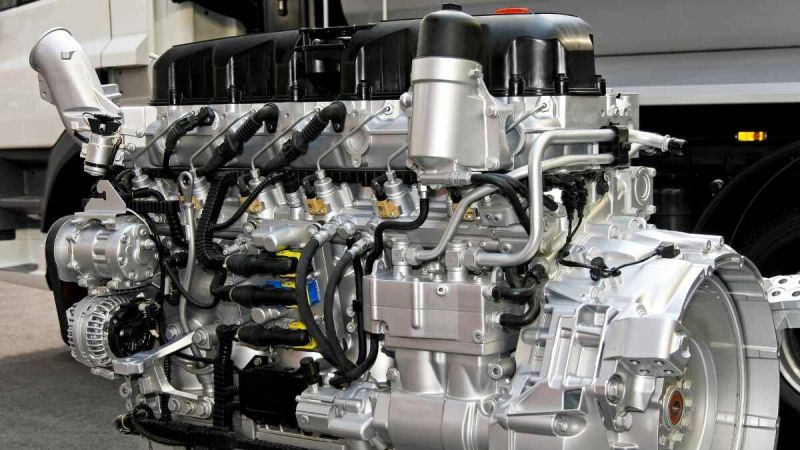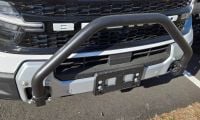If you have always owned a gasoline-powered truck, but now own a new Cummins diesel engine truck like a Ford F-450 outfitted with a 6.7L Power Stroke Turbo Diesel V8 engine for towing an RV or other heavy-duty work, you might find yourself in unfamiliar waters with how to properly maintain it.
Fair enough. Because there are differences, if not special considerations, you need to be aware of when it comes to owning a diesel truck that you have not had to deal with when you owned a gasoline-powered truck.
A New Diesel Truck Owner Has Questions
For example, both gasoline and diesel engines share common maintenance tasks, but also differ in how and when the tasks are performed; As well as, operational differences that mark diesel engines as special.
As the old saw goes, “The devil is in the details,” so if you want to avoid some hellishly expensive repairs there are some details you need to know before hitting the road pulling your summertime yacht up steep hills.
That was the message in a recent Dave’s Auto Center YouTube channel episode where the host discusses some of the details a diesel-uninitiated friend needs to know now that he is the proud owner of a monster Ford truck hoping it will last him a lifetime.
Follow along with the host as he addresses questions a new diesel owner might have (or should have) to explain a little about what needs to be understood and done to avoid a blown diesel engine.
Questions like:
- Does the quality of your diesel fuel matter with modern trucks?
- Aren’t all diesel fuels the same everywhere?
- What do you do if (out of habit) you start to add gasoline instead of diesel to the tank?
- Do you need to supply additives to your tank every time you fill it with diesel fuel?
- What is the best way to get the most horsepower out of your diesel truck?
- What do you need to know about your truck’s diesel scrubbing system?
- Why is prolonged idling actually bad for your diesel truck engine?
- How often do you need to change the oil in a diesel truck?
- Why is occasional oil sampling from your engine a good practice to adopt?
- How often do you need to flush your cooling system?
- What should you watch for to avoid burning up your engine while driving and pulling a load?
Diesel Truck Maintenance
Common Problem Owners Run Into with a Diesel Truck
One of the most common problems an owner can expect to run into with a diesel truck is rough running that is likely to be due to contaminated fuel. As pointed out earlier in the article, diesels fuels are not the same everywhere.
To give you an idea of how bad (and expensive) a problem like this can be, here is another informative Dave’s Auto Center YouTube channel episode that covers this problem with one client:
Diesel Fuel Contamination
How Can I Avoid Contaminated Diesel Fuel?
For more about diesel fuel contamination and the problems it can cause and what you can do about it, here is an informative video titled “Avoiding Diesel Fuel Contamination.”
However, what you can do at the pump to avoid the risk of putting contaminated diesel fuel into your vehicle, here are a few tips to increase your odds that your diesel fuel is clean:
- Only Fuel at Reputable Chains: Stick to well-known, reputable fuel station chains. These stations often have better quality control measures in place.
- Check Customer Reviews: Online reviews can reveal a lot about a fueling station and whether diesel owners have had problems linked to particular stations.
- Check for Color: When filling up, observe the diesel’s color through the transparent part of the pump nozzle. Good diesel is usually clear or slightly amber.
- Choose the Busier Stations: Stations with high fuel turnover will mean that the fuel is replenished frequently, which will reduce the chances of contamination or fuel degradation. Stations located beside highways are your best bet.
- Cleanliness is Important: A clean and well-maintained station is a good indicator of overall management and attention to quality whereas a poorly maintained station is a red flag that the fuel there could be questionable as well.
- Look for a Station’s Maintenance Records or Certifications on the Wall: Some stations may display maintenance records or certifications indicating their tanks and pumps are regularly serviced. Also, check if the station has posted their compliance statements prominently.
- Choose Top Tier Diesel: Look for stations that sell Top Tier Diesel, which meets higher standards for fuel quality and ask if additives that provide cleaner and more efficient fuel are present in the fuel sold.
- Seek Word of Mouth Advice: Ask local truck drivers, mechanics, or other diesel vehicle owners for recommendations. They often know which stations have the best fuel.
- Filter it Yourself: Use a diesel filter funnel when refueling to catch any contaminants before they enter your vehicle's tank.
- Buy a Diesel Testing Kit: Purchase a diesel testing kit to periodically test the fuel quality.
By following these tips, you can significantly reduce the risk of fueling up with contaminated diesel, which will go a long way toward ensuring better performance and longevity for your diesel truck.
Do I Need to Worry About Owning a Diesel Truck?
If you find yourself questioning whether or not you should become a diesel truck owner, in general you should not let fear of the unfamiliar affect your decision making.
While diesel engines can appear complex and unlike a gasoline engine in several ways, a non-mechanic can maintain a diesel engine truck―as long as there is a willingness to learn and some basic mechanical aptitude and experience already under their belt.
There are many resources for learning about diesel engine maintenance, the first of which is your vehicle’s Owner's Manual for following the manufacturer’s maintenance schedule and guidelines. You will also find numerous online tutorials, websites, forums, and YouTube channels dedicated to diesel truck maintenance. Haynes manuals cover several models of Ford trucks and GM truck models with diesel engines as well and are a good beginner’s first resource.
But most important of all is to have someone to go to who works on diesel engines and is willing to answer your questions and even offer some repair advice to help you out from time to time.
By utilizing available resources, a non-mechanic can effectively maintain a diesel engine truck and ensure its longevity and reliability…and maybe even have a little fun at the same time.
Related article: DIY Car Repairs Just Made Easier for These Car and Truck Owners
Timothy Boyer is an automotive reporter based in Cincinnati. Experienced with early car restorations, he regularly restores older vehicles with engine modifications for improved performance. Follow Tim on “Zen and the Art of DIY Car Repair” website, the Zen Mechanic blog and on Twitter at @TimBoyerWrites and Facebook for daily news and topics related to new and used cars and trucks.
COMING UP NEXT: Best Hybrid Cars for Under $35,000
Image source: Deposit Photos
Set Torque News as Preferred Source on Google











